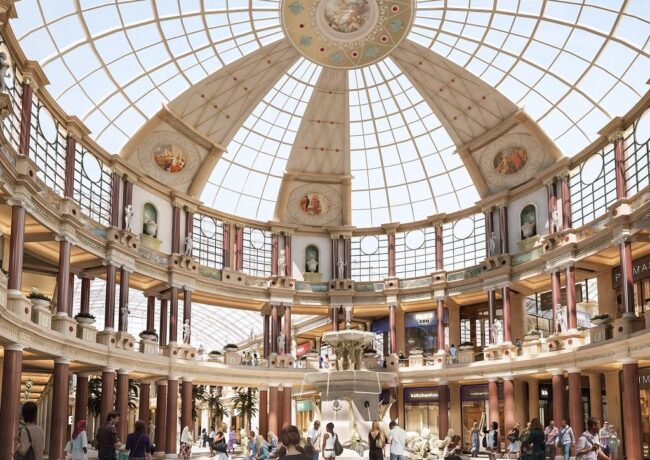Intu reports £2.2bn loss for 2019
The Trafford Centre owner almost doubled its losses in 2019, from £1.1bn the year earlier, due to “challenges in the market” leading to a significant revaluation of its portfolio.
Intu Properties attributed the £2.02bn loss – equating to an additional £848m in losses over the 12 months to 31 December 2019 – predominantly to a property revaluation deficit of £1.9bn.
The company’s net asset value stood at £1.9bn as of the end of December, down more than 22% from its £3.8bn valuation in 2018.
The market value of assets also dropped, to £6.6bn in 2019 from £9.2bn in 2018, partly due to disposals and sale of sites across the UK and Spain, and a £129m investment into the Trafford Centre and Intu Lakeside shopping centres in Essex, Intu said in its annual results filing to the London Stock Exchange today.
Intu reported a 6% drop in revenues to £542m in 2019, attributed to retail store closures and administrations amid a challenging period for the sector.
Chief executive Matthew Roberts said: “Structural challenges ongoing in the retail sector [were] exacerbated by the continued weak consumer confidence from the political and economic uncertainty in the UK.”
In its financial report, Intu outlined actions intended to fix its balance sheet and reduce its £4.5bn of debt. The strategy could include the disposal and part-disposal of UK and Spanish assets. The company’s chief executive and chief financial officer were unavailable for comment on Thursday.
Selling assets was highlighted as an option last week when Intu said it was forced to abandon its £1bn equity fund raise due to lack of investor interest. Intu said it was exploring “alternative options to raise financing, including selling assets”. Intu’s share price dropped 40% that day, reaching an all-time trading low. This morning, shares were down 15%.
Roberts said today: “In [2019], we made a loss of £2bn, predominantly due to a property value deficit of 23%, which is now 33% down from the peak in December 2019. This results in our debt-to- -assets ratio increasing to 65%, highlighting the importance of fixing the balance sheet in our strategy.”
He added: “The [retail] store is not dying, it is evolving. The right stores in the right locations will always play a vital role for retailers.”




